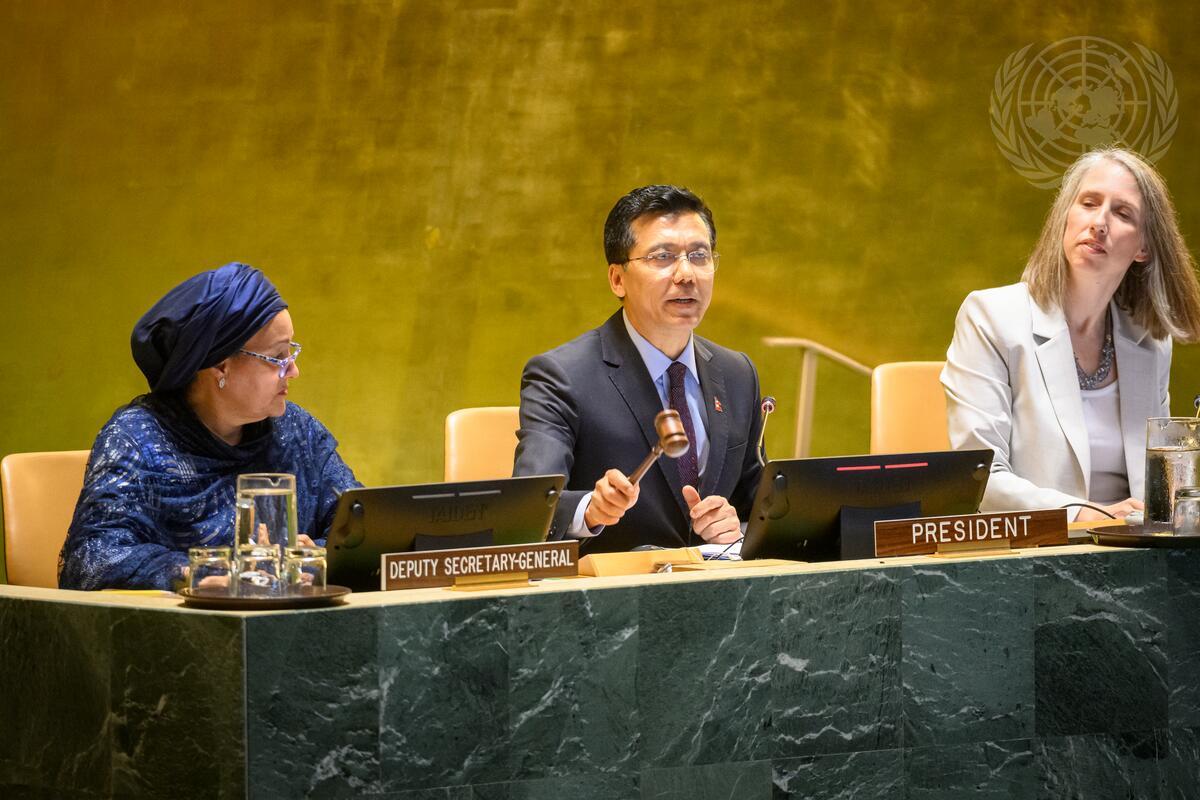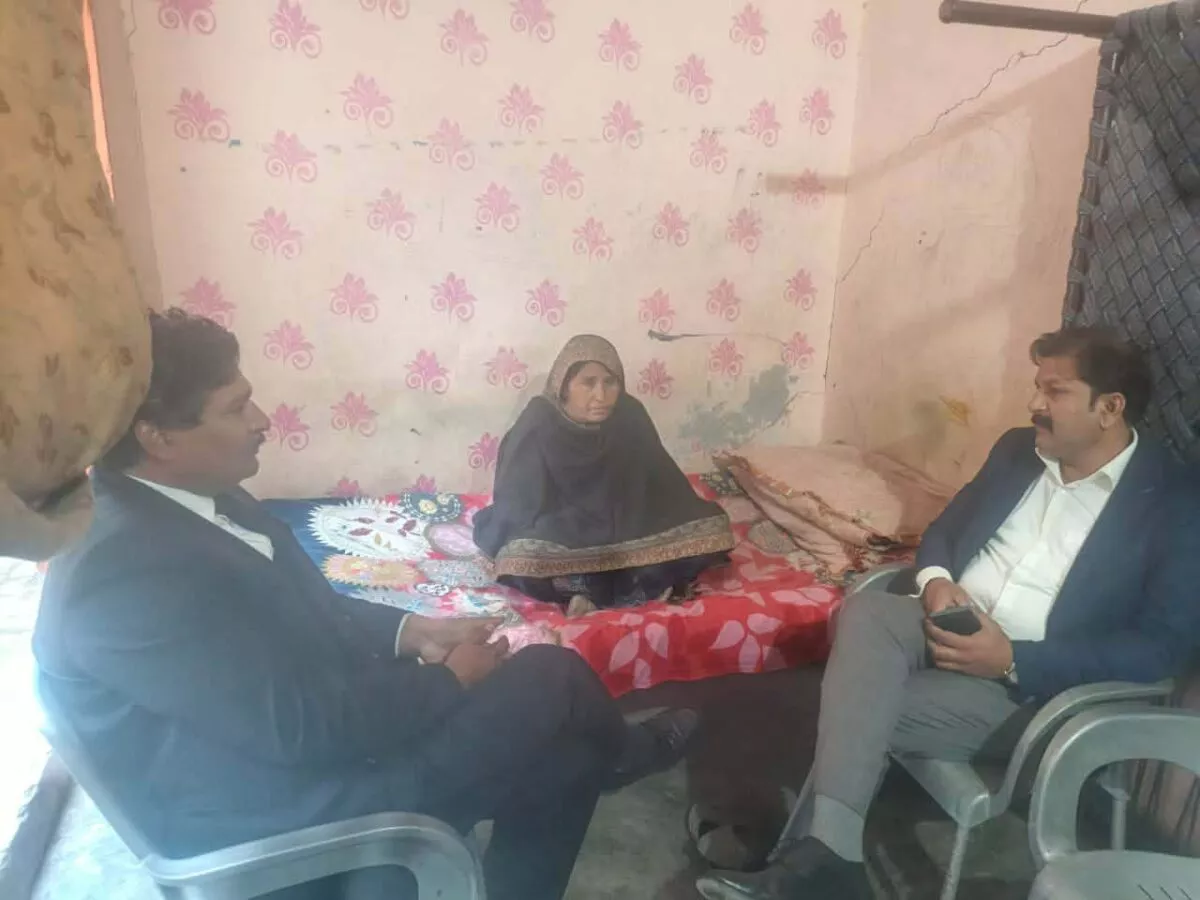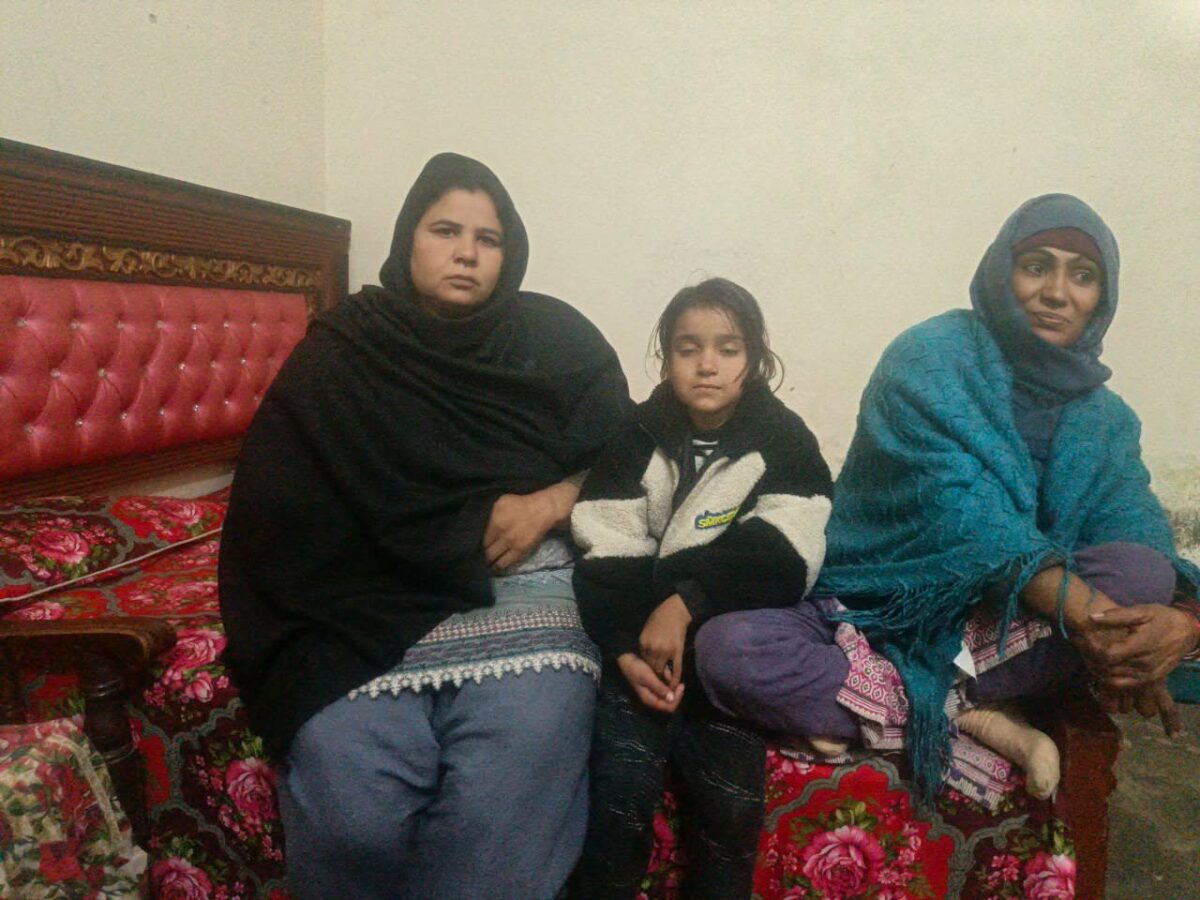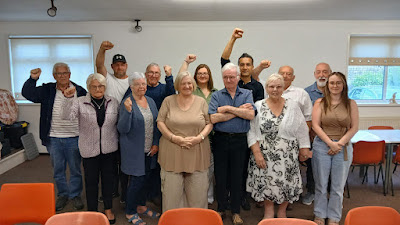Sahiwal: The British Asian Christian Association (BACA) continues to stand alongside vulnerable Christian families in Pakistan who face injustice,
Global crises are escalating: It's time for the UN to act says Dr. Ghulam Nabi Fai, Chairman, World Forum for Peace & Justice
New York: Hundreds of government officials and more than a thousand civil society representatives are attending the 2025 High-level Political Forum (HLPF) at the United Nations headquarters in New York to assess progress on the Sustainable Development Goals (SDGs). The forum runs from July 14 until 23, 2025. This forum comes at a crucial time as member nations desire to advance solutions to ongoing conflicts, economic uncertainty, and the climate crisis. The forum is chaired by Ambassador Lok Bahadur Thapa od Nepal who is also the Vice President of Economic and Social Council (ECOSOC). In his opening remarks, Ambassador Thapa emphasized that the peace building is interconnected with development, peace and conflict prevention across multiple United Nations dialogues. The keynote address was given by Amina J. Mohammed, Deputy Secretary-General of the United Nations.
Amina Mohammed in her key-note address said on July 14, 2025, that in 2015, the world made a landmark commitment to achieve sustainable development and ensure that no one is left behind. It carried a promise to everyone, everywhere, to live in dignity, on a safe and healthy planet.
Today, a decade later, we meet again as the world grapples with conflicts and deepening geopolitical tensions. The fabric of multilateralism is fading, and the Sustainable Development Goals (SDGs) seem out of reach.
Amina Mohammed added that we are under pressure because the truth is: expectations are high, trust is eroding and crises are deepening, as we strive to deliver on our promise of the 2030 Agenda.
Earlier Amina Mohammed said on March 5, 2025, that ten years after the adoption of the 2030 Agenda for Sustainable Development, reports show we are gravely off track. Intensifying, interconnected challenges continue to endanger the realization of the Sustainable Development Goals by 2030. For example, the global goal of ending extreme poverty by 2030 is in danger of failure, with almost 600 million people still living in extreme poverty. Hunger is also increasing.
But we cannot give up hope or dilute our ambitions.
António Guterres, UN Secretary-General said on June 19, 2025, that sustainable peace requires sustainable development. The flames of conflict are too often lit and fed by persistent poverty and growing inequalities. Time and again, we’ve seen conflict engulfing lives and institutions, wiping out development gains and uprooting millions of people.
Mr. Guterres highlighted that we’ve seen how poverty, underdevelopment, inequality, injustice, hunger and exclusion can light the fuse of instability and conflict. Poverty breeds despair. Despair fuels unrest. And unrest tears at the fabric of societies — feeding mistrust, fear and violence.
When people are denied opportunity; when human rights are violated and impunity persists; when crime and corruption thrive; when climate chaos displaces and destabilizes; when terrorism finds fertile ground in weak institutions — peace can quickly become a distant dream.
Mr. Gutterress also said on September 24, 205 that all our development plans are quickly erased by relentless conflicts that cause death, destruction, hunger, displacement and gender-based violence. And the resources we desperately need to feed and educate our children and build a sustainable planet for our young people are wasted on military expenditures.
Ms. Tantiana Molcean, the United Nations Under Secretary General said on April 2, 2025, in Geneva that sustainable Development is not an abstract goal. It is about people’s lives. It is about actions at the national and local level on job, health, education, and our shared environment. It is about the kind of future. We want to build together…Across our region, we see the consequences of inaction. War is eroding stability and development. Geopolitical tensions are straining multilateral cooperation.
As highlighted by Amina Mohammmed, Antonio Guterres and Tantiana Molcean that the highest agenda items on Sustainable Development Goals (SDG’s) are global conflicts, poverty and hunger. I concur with their assessment. I believe that the most urgent approach to promoting global partnership for sustainable development is the ending of warfare. War, whether intramural or international, wreaks havoc on the elements necessary for health, housing, education, employment, the rule of law, the environment, and happiness generally.
War is enormously expensive. It diverts resources from schools, hospitals, roads, and telecommunications to AK-47s, Kalashnikovs, missiles, drones, bombs, and artillery shells. The children are deprived of educational opportunities. Many are maimed and become permanently disabled from productive employment. Others become emotionally and psychologically disturbed. It is fully documented that the use of pellet gun by Indian army in Kashmir, maimed hundreds, caused severe and often permanent injuries.
War also fosters disease and physical ailments. Individuals are more susceptible to crippling bacterial and viral illnesses when their housing and food is shortchanged. Further, war destroys hospitals and handicaps the supply of medicine. Medical workers frequently shy from dangerous conditions. And refugee camps are notorious for insalubrious quarters. As reported that more than half a dozen hospitals, including Al-Ahli Arab Hospital in Gaza, European Hospital in Khan Younis were destroyed by air strikes, including its emergency department, pharmacy and genetic labs.
War also creates a culture antithetical to democracy and the rule of law. It teaches that disputes should be resolved by the bullet in lieu of the ballot box. The prime example is the massacre at Pahalgam, Kashmir in April 2025, which brought both India and Pakistan to the brink of nuclear catastrophe. If it was not for President Trump’s wisdom and the deep understanding of the Kashmir problem, the region would have headed towards unmitigated disaster leading to unparalleled human fatalities. President Trump brokered ceasefire and saved the lives of millions.
Second on the global sustainable development agenda should be the elimination of poverty and hunger. The goal should be to secure for every man, woman, and child a right to flourishing health, a clean environment, comfortable housing, and nutritious food. The goal is not a choice but a moral obligation. The BBC reports that Gaza’s 2.1 million residents are at critical risk of famine, with 244,000 in catastrophic hunger. UNICEF & WFP warn that 71,000 children and 17,000 mothers are at imminent risk of malnutrition, with escalating acute cases since the blockade began in March.
To me the issue of global sustainable development is the issue of the twenty-first century. Never before have so many suffered amidst liberty and luxury for the few. While citizens of some African and Asian countries are starving, the rich countries are beset with obesity. Discrepancies of these types are morally disturbing.
Let me with great humility offer a few closing observations about the entire global sustainable development enterprise. It is characteristic that national or international organizations employ quantitative benchmarks to measure success in meeting enumerated objectives. For instance, a longstanding objective has been for each nation to contribute a specified percentage of its gross domestic product for humanitarian or foreign aid. Companion quantitative benchmarks have been set for literacy, vaccinations, annual income, longevity, smoking, etc.
There is nothing inherently mischievous about these development yardsticks. But they should never distract from our recognition that the highest in sustainable development consists of non-quantifiable characteristics. These would include acts of charity, humility, courage, benevolence, magnanimity, self-restraint, and non-vindictiveness. It would seem to me to turn logic and morality on their heads to award higher sustainable development acclaim to a nation whose citizens were universally economically prosperous, literate, healthy, long-lived, non-polluting, but also mean-spirited, selfish, and egotistical than to a nation whose citizens were impoverished, plagued by disease, but were generous in time, effusive in hospitality, austere in habits, and selfless for the community.
Indeed, we belong to Allah and indeed to Him we shall return. Let our deeds speak long after we are gone.
(Dr. Fai is also the Secretary General, World Kashmir Awareness Forum. He can be reached at: WhatsApp: 1-202-607-6435. Or. gnfai2003@yahoo.com
www.kashmirawareness.org
You May Also Like
Pakistan: The British Asian Christian Association (BACA) continues to stand in solidarity with vulnerable Christian families in Pakistan, offering
UK: This week, I received a response from the Welsh Government to the UK RAAC Campaign Group’s Open Letter on the RAAC National Crisis. The r

On demand of our readers, I have decided to release E-Book version of "Trial of Pakistani Christian Nation" on website of PCP which can also be viewed on website of Pakistan Christian Congress www.pakistanchristiancongress.org . You can read chapter wise by clicking tab on left handside of PDF format of E-Book.









